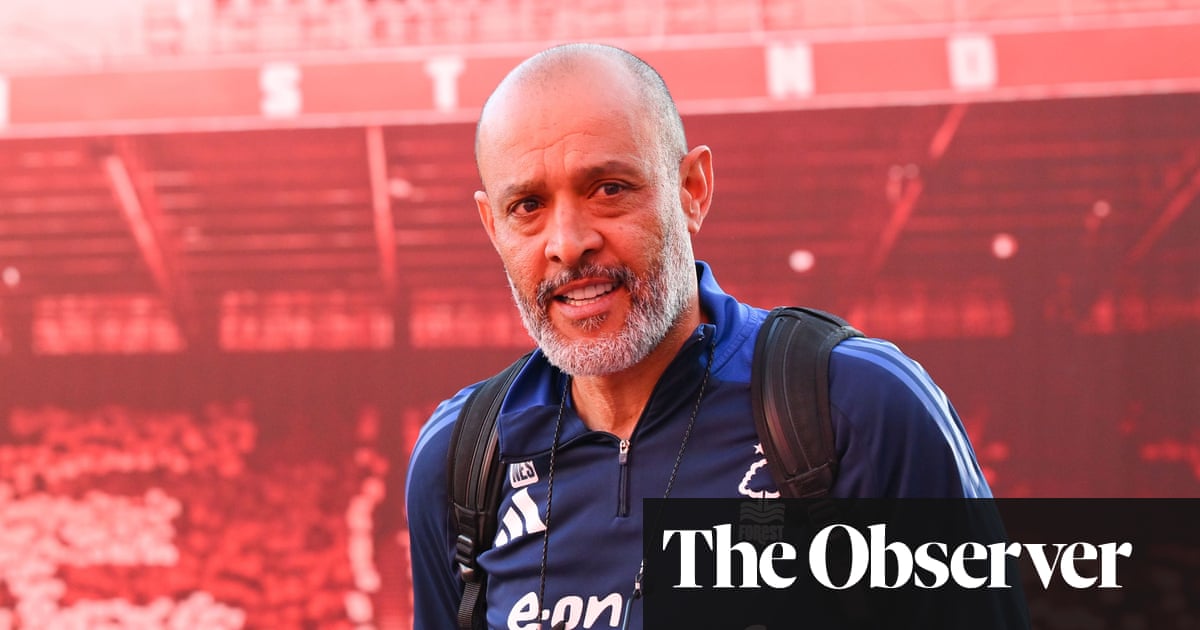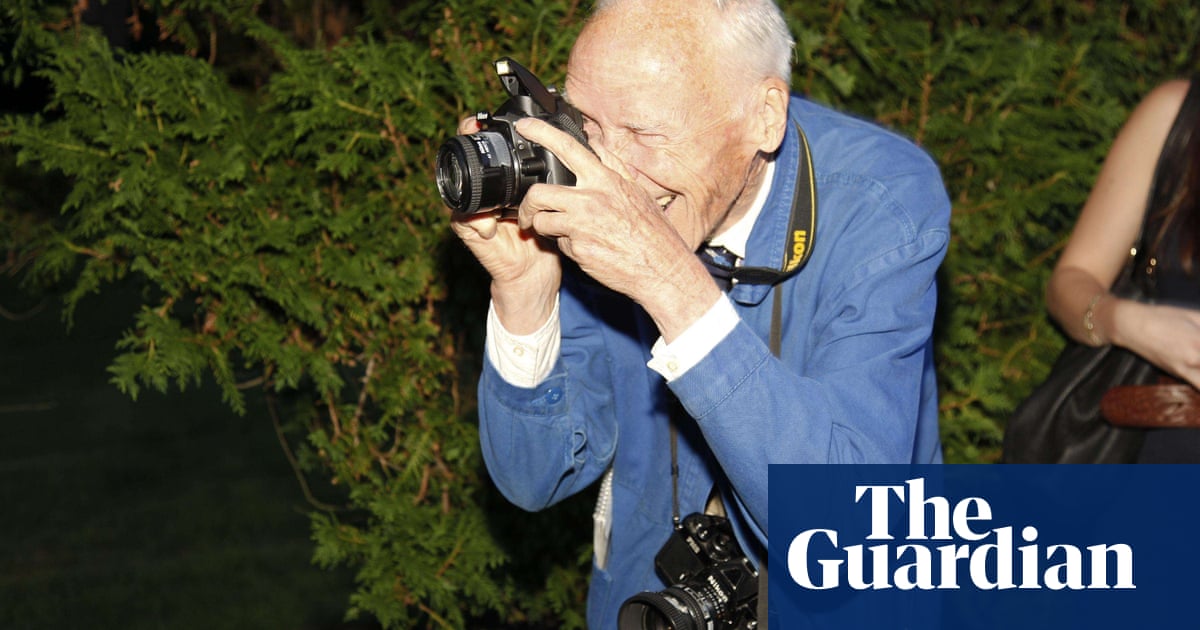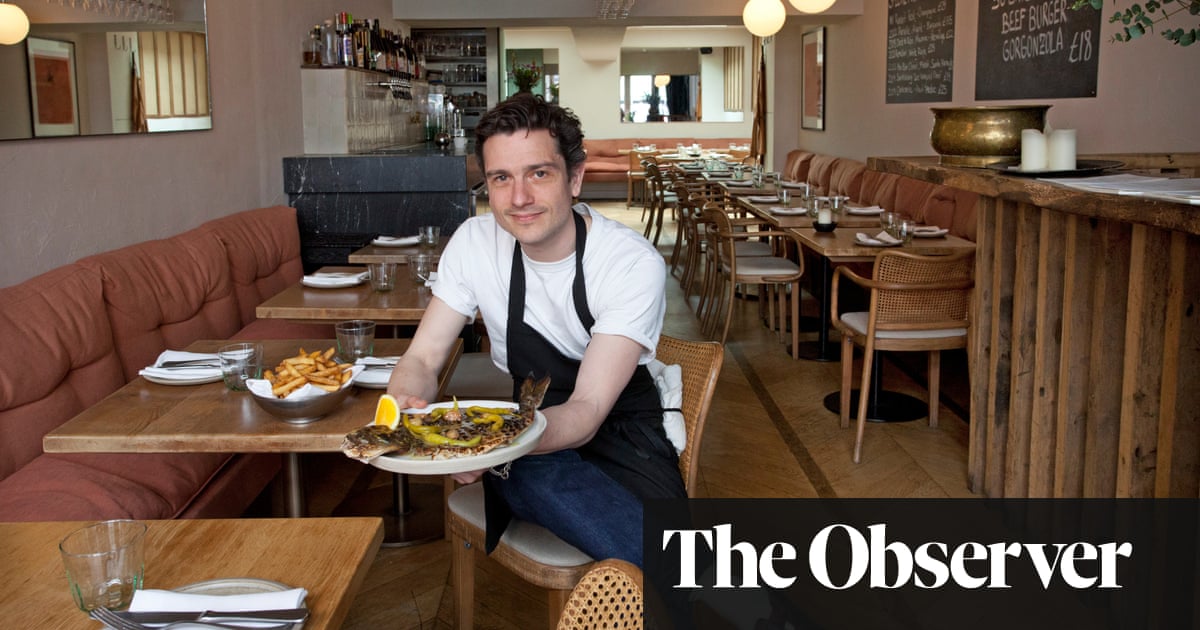Paul Barber loves to recount the story of his first meeting with Brighton’s owner, Tony Bloom, in 2012. “You’ve got to remember, you’re dealing with a highly skilled mathematician, one of the world’s best poker players,” says Barber, who had been headhunted for the role of chief executive after Bloom was impressed with his work at Vancouver Whitecaps.
Barber had prepared himself for the tough salary negotiations that followed, but didn’t expect the terms would be agreed on a piece of paper torn from Bloom’s notebook.
“I’ve still got it,” he says. “I was back in Vancouver for a month after this meeting, and I emailed him and said: ‘I still haven’t got anything from HR – do you think they’re going to send anything? He said: ‘You don’t need anything. We’ve shaken hands, and you’ve got the paper. We’re done.’ What that told me about him was about trust.”
Barber has played a major part in Brighton becoming one of the Premier League’s model clubs in partnership with Bloom, and on Friday started a job alongside that. He has taken over as the non-executive chairman of Football Beyond Borders – a charity that helped more than 3,000 disadvantaged young people from across England last year – and sees the similarities between its work and his day job. Barber has just listened to a speech from FBB’s cofounder and chief executive, Jack Reynolds, at Wembley where his career in football began more than 25 years ago as a commercial director for the Football Association.
“What’s the main word that Jack talks about? It’s trust. The young people just want to be able to trust the person that is in their lives. And Tony Bloom is the epitome of trust. When he says yes, he means yes. When he says no, he means no. When he says, you can do it, you do it, and you don’t need a piece of paper; you don’t need anything more than the word or the handshake. That summarises the way Brighton operates.”

That extends to the celebrated recruitment department, with Barber citing the lengths that Brighton’s player care team go to ensure new arrivals feel welcome. “We’re checking in on them, making phone calls sometimes for the young players, we’re preparing meals for them to take home in the evening,” he says. “So otherwise, it’s KFC, it’s McDonald’s, it’s the easy things, and that’s not going to help performance. And if their performance isn’t enhanced by what they’re eating, then their whole status within the club is potentially threatened. The links with FBB are so pertinent. Young people need more than just a great training ground and the adulation of 35,000 people. They need someone that they can trust day to day.”
This is also a personal mission for Barber, who can see his teenage self in some of the estimated 800,000 young people in the United Kingdom who do not have what FBB refers to as “a trusted adult” to confide in.
“When I was 13 my parents separated and I had a rocky couple of years at school,” he says. “I’d never been top of the class, I was nowhere near the bottom but I lost my way a bit after that. I didn’t see my dad for 40 years so I lost a significant person in my life. One of my teachers took me under his wing and realised that I probably needed a little bit more guidance from a male trusted adult and football.
“My confidence had been eroded by the divorce and it was football that reconnected me and gave me the confidence to be what I am today. So when I was contacted by a headhunter who was looking for a new chair for Football Beyond Borders and he explained to me what they did, I thought: ‘Wow this is an organisation I totally relate to in lots of ways – right the way back to when I was 13. That resonated with me and I wanted to try and put something back if I could. I’ve been lucky in 25 years in football to have built connections and that’s what they need so it seemed like a great fit.”
Juggling his new commitments shouldn’t be an issue for someone with Barber’s energy and although he has never taken on Bloom at poker – “I would lose not only my house, but probably my shirt” – he does enjoy a game of padel and reveals there have been talks with Crystal Palace’s chairman, Steve Parish, over a potential matchup for charity. “Maybe Parish and [Oliver] Glasner versus me and Fabian [Hürzeler] at the training ground on our padel court for charity: winner has to pay FBB a sum of money. How’s that? Steve would be up for that …”
Barber admits he and Bloom had doubts about hiring Hürzeler at the age of 31 to replace Roberto De Zerbi in the summer. But the coach won them over during his interview by pointing out that he had the same amount of experience as a coach who had retired from playing in his mid-30s and was in his early 40s. “We both sort of looked at each other and said: ‘Yeah, it’s a good point, actually.’ And you know, it’s true. He’s had eight years of coaching experience. The difference is, he just started that journey younger than most people.”
Barber highlights Hürzeler’s communication skills and ability to develop players as the other key factors in the decision to make the German the youngest permanent manager in Premier League history. He cites the departure to Chelsea of 11 players and staff, including the head coach Graham Potter, as evidence of firm foundations.
after newsletter promotion
“We’re a stronger club because of that, because of those sort of setbacks. So we’ve never been knocked off course when we’ve lost people. And the irony of that is that all we are about is people … the relationships, the trust, the confidence that comes from that is everything.”

De Zerbi appeared to break that trust when he described Brighton’s 4-0 defeat by Roma in their historic run to the last 16 of the Europa League last year as a “rude awakening” and questioned the investment in his squad. “He was using that to put pressure on me and Tony,” Barber says. “We don’t work like that. So we were never going to respond. I think it certainly caused a change in the relationship. But you know what he was trying to do, what he thought was best for his players and his team and his job.”
Brighton were then the second-highest spenders in Europe during the summer, shelling out almost £200m on nine players. Barber is not expecting a busy January but concedes the club’s model means it is inevitable some will follow in the footsteps of Moisés Caicedo, who joined Chelsea for a British record fee of £115m. “We always try and make sure that we have the replacement for that player through the door first,” he says.
Barber, who grew up as a Tottenham supporter and worked for Daniel Levy earlier in his career, insists he is happy at Brighton. There have been “one or two” approaches from other clubs but he signed a new contract until 2030 this year. Brighton hope to be in contention for European qualification again despite a recent blip.
“Tony is someone that I know and trust, and I know his ambition matches mine,” Barber says. “We have an almost symbiotic relationship sometimes, where we think the same things without even speaking, or we reach the same conclusion without even talking. Our ambition has no ceiling. One of our values is to aim high and exceed expectations.”

.png) 3 months ago
30
3 months ago
30













































